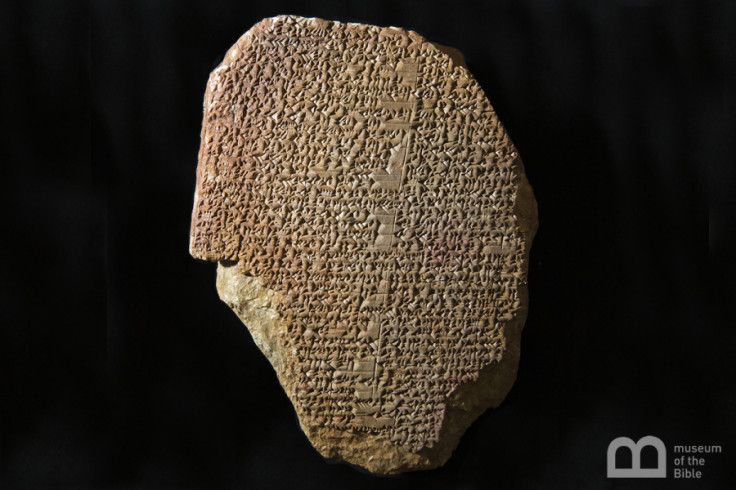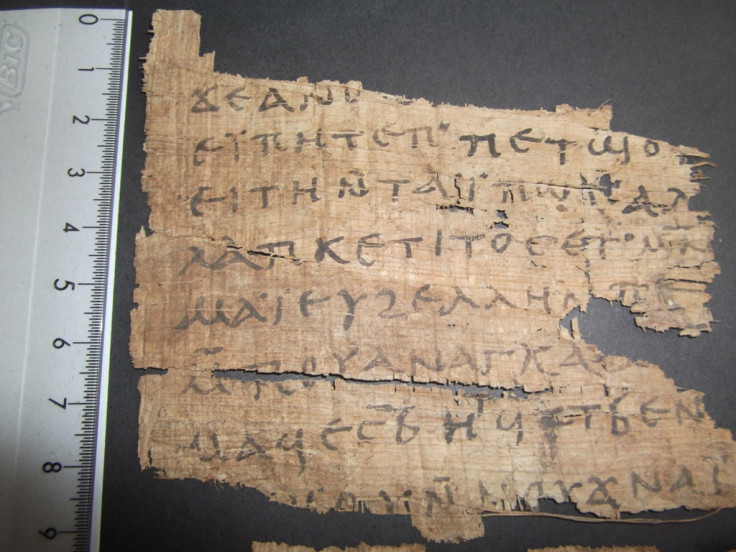Hobby Lobby CEO David Green probed by FBI for allegedly smuggling illicit artefacts from Iraq

The FBI is currently investigating the owners of Hobby Lobby, one of America's most openly Christian businesses, for allegedly obtaining illicit artefacts looted from the Middle East.
The chain of retail arts and craft stores based in Oklahoma City is owned by the Green family and Forbes estimates its founder and CEO, David Green, is worth $5.5bn (£3.6bn).
According to federal sources who spoke to the Daily Beast, the Feds have been investigating Green and his family since 2011 after a shipment of between 200 to 300 small clay tablets inscribed in cuneiform – the ancient script of Assyria and Babylonia – were seized by US customs agents in Memphis, Tennessee, on their way to Oklahoma City from Israel.
The Greens own the Green Collection, which is the world's largest private collection of rare biblical texts and artefacts. They have amassed a collection of over 40,000 ancient artefacts, and these items, together with the tablets, are meant to be showcased in the Museum of the Bible, a huge new museum in Washington, DC, that has been funded by the Greens and is due to open in 2017.
"There was a shipment and it had improper paperwork — incomplete paperwork that was attached to it," said Cary Summers, president of the Museum of the Bible.
Summers dismissed the claims of a federal investigation, suggesting the tablets were simply "held up in customs", stating: "Sometimes this stuff just sits, and nobody does anything with it." However, the Daily Beast's sources say federal investigators have already conducted hundreds of hours of interviews pertaining to the seized tablets, so it is unlikely this situation is going to go away.
The controversial Green Collection
This is not the first time the Greens have been in the news. In January, biblical scholar Dr Craig Evans announced the oldest known piece of a New Testament gospel had been found in a mummy mask belonging to the Green Collection, which had to be dismantled in order to access the fragment.
His statement caused an uproar among archaeologists around the world, who condemned the Green Collection for dismantling priceless ancient artefacts and raised questions about other suspicious incidents.

At the time, Dr Roberta Mazza, a historian and papyrologist from the University of Manchester, told IBTimes UK she had been tracking a gospel papyrus fragment with a text from Galatians 2:2-4, 5-6 in the New Testament that was sold on eBay in 2012.
In 2014, Mazza found the same fragment in Green Collection exhibition in Rome, and when she asked the head of the Green Collection where it had obtained the fragment, the answer she was given sounded fishy.
"I asked the head of the Green Collection where the fragment came from, and nine months later, the day before I was to give a paper to the Biblical Society of Literature, they replied," Mazza said.
"I was told that the Green Collection bought the papyrus in 2013, and that originally it was part of a collection of papyri bought from Christie's in 2011. They haven't explained how the papyrus went from Christie's to eBay to them."
The Green Collection responded to Mazza's accusations, telling IBTimes UK it could not discuss any artefacts that had not been published and that the Green Scholars Initiative had to first complete all investigations and satisfy the curiosity of the scholarly community before any results could be released.
Museums and private collectors are not above the law

According to Lynda Albertson CEO of the Association for Research into Crimes Against Art, the news about the Feds investigating the Greens does not come as a surprise. Just like Mazza, she wants the Greens to be a lot more transparent about how they decide to acquire artefacts.
She told IBTimes UK: "My question to the Greens would be, do they have ethics and practices? What are their practices for their new museum? What has been their policy for selecting objects?"
"I think we need to stick with rules and legislations. It's not for an individual company or museum to disregard international laws. One can argue that the Parthenon Sculptures should stay in the UK as Lord Elgin, the British diplomat who transported the sculptures to England, acted with the full knowledge and permission of the legal authorities of the day.
"This is not the case with Iraqi or Egyptian or Syrian antiquities during present day conflicts. The loophole is that they are being taken from the ground and there's no photo dossier or prior record of them to date when they were removed."
Albertson says currently, no governments in the world are funding investigations into art trafficking looking towards comprehensive prosecution of the principle actors involved in the sale of illicit antiquities from conflict countries. While programs and funding do exist to record the impact of looting in source countries, it is not enough and is not designed to police the art market or address the problem from the buyers' end.
"If we're concerned about groups like Isis or other militaries utilising antiquities for funding conflicts, we need to look at the buyer's market. As long as there are buyers for artefacts, there will be an illicit market fed by subsistence looters and the supply chain to feed that supply," she stressed.
"The federal government will wait till they have enough for an indictment before they speak about it publicly, and it will be up to the Greens to prove where the tablets came from. Collectors in general need to be more transparent and exercise the same restraint that we have with purchasing diamonds. We wouldn't purchase them from conflict countries and the same needs to be held true for our work."
© Copyright IBTimes 2025. All rights reserved.






















